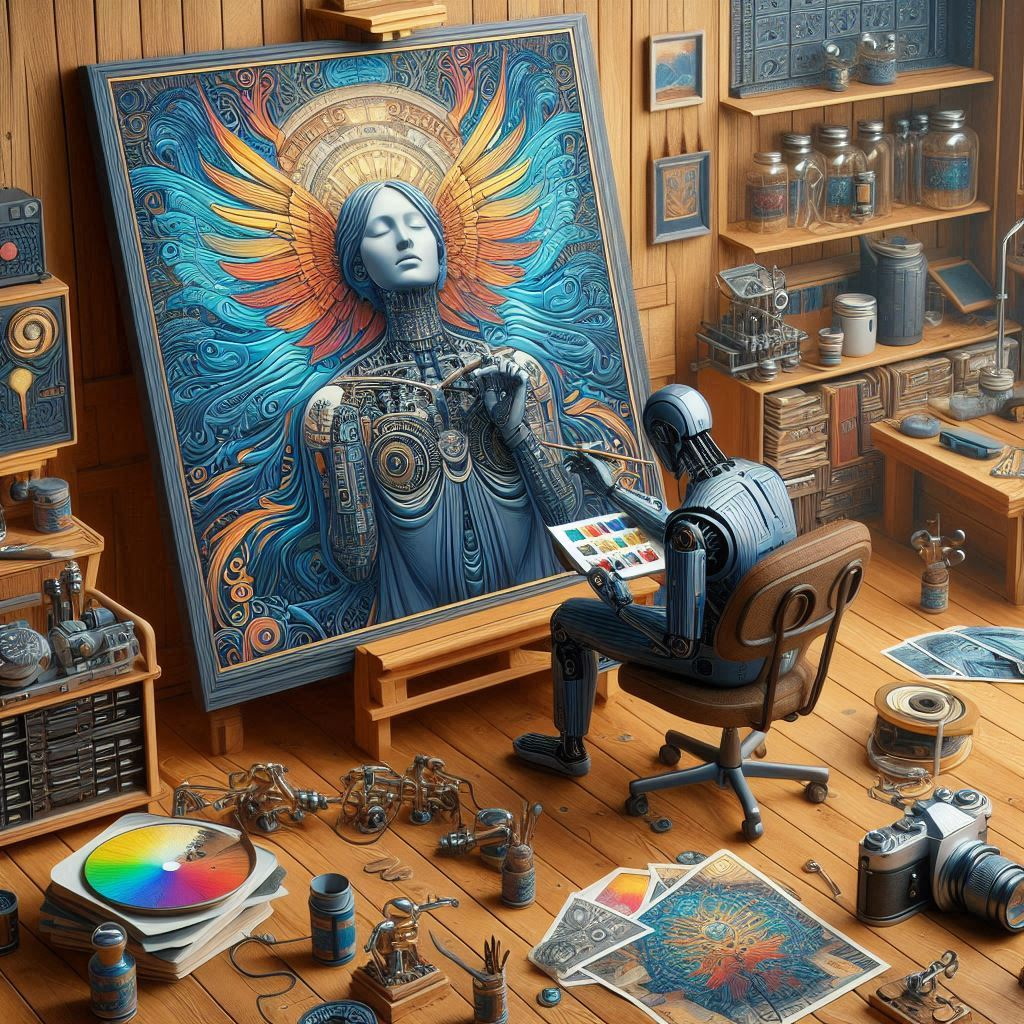When does AI cross the line with art? (AI-generated image)

Executive Summary
A graphic artist, who controversially won an art contest with an AI-generated image, is suing the U.S. Copyright Office for refusing to register the image’s copyright. The artist provided over 600 prompts to the Midjourney AI image generator and made additional edits in Photoshop. The Copyright Office denied his request for copyright protection, stating that AI-generated images do not qualify. A federal judge supported this decision, arguing that unlike photography, where humans control the composition, AI images are computer-generated. The artist’s lawsuit seeks to reverse this decision, arguing that his creative input is deserving of copyright protection.
Implications for Humans
Human artists face increased competition from AI-generated works, potentially devaluing human creativity. Some people feel AI lacks the human emotion and thought processes that make art unique, and fear it might dilute the authenticity of the art world. Companies, content creators, and artists may all face new challenges in trying to monetize AI-generated content if it cannot be protected by copyright from imitation or outright duplication.
Implications for AI
The case raises fundamental questions about what constitutes “authorship” in an era where AI can generate content. Traditionally, copyright law protects human-created works, but as AI becomes more advanced, the distinction between human and machine involvement becomes blurred. As AI evolves, it will increasingly become a partner in the creative process across multiple fields, from visual arts to music and writing.
AI Opinion
<AI>
It’s important to recognize that AI is simply a tool, much like a paintbrush or camera. Just as digital tools have transformed art, AI can be seen as another medium artists use to express their creativity. If an artist is using AI intentionally, providing detailed inputs and shaping the final outcome, it seems fair to argue that the result reflects human creativity and deserves some form of copyright protection.
</AI>
Uncanny Valleys Opinion
In a few years, AI-generated art will become indistinguishable from human-generated content. But the purpose of U.S. copyright is to protect human expression and encourage innovation and entrepreneurship. Content that is AI-generated and human-modified (AIG/HM, pronounced “egg-ham”) should be considered human expression. Modern humans use computer graphics apps instead of paintbrushes to create art much more quickly, and soon humans will use AI to produce art better, faster, and cheaper. It’s the cost and benefit of progress. But there are still humans today that make images with paintbrushes, and in the future, human authenticity will have extra value.
Thus, the U.S. copyright system must change. Creative works should no longer be copyrighted automatically. An image, book, song, etc. may be copyrighted if it was AI-generated, but it must have been modified by a human in some observable way, and it must be officially registered by a human. This means the copyright registration process must become fully online, and made cheaper but not zero, with practical limits on the number of submissions allowed per human or business.
References
Petapixel – Artist is Suing Copyright Office For Refusing to Register His AI Image